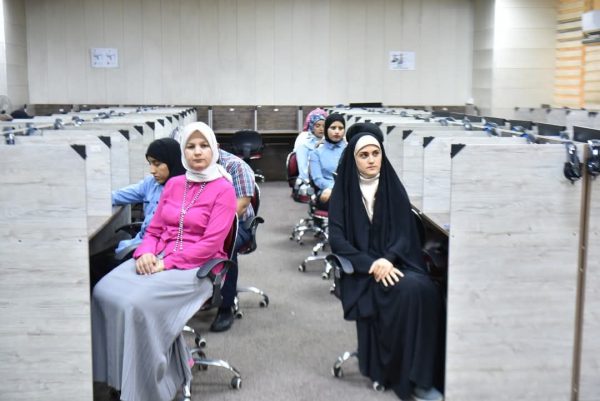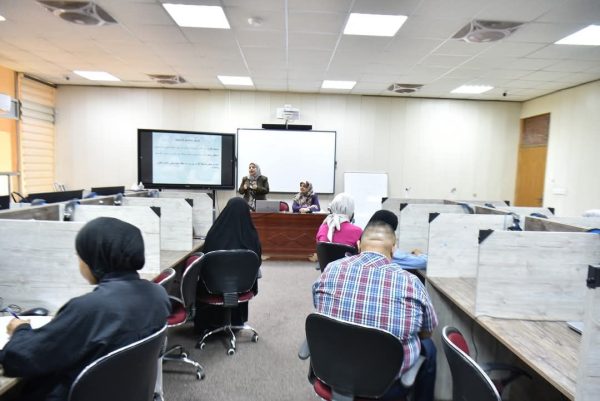Under the patronage of Professor Dr. Sameera Naji Khdim, Dean of the College of Science for Women, the Department of Computer Science, in collaboration with the Psychological Counseling and Educational Guidance Unit, organized a workshop entitled “The Impact of Peer Pressure on the Spread of Drug Abuse Among Students and Its Academic Implications.” The workshop was presented by Dr. Noor Ridha and Dr. Amal Safeh.
The workshop aimed to shed light on peer pressure as one of the most influential psychological and social factors affecting student behavior, particularly during adolescence and youth—a stage in which individuals are in the process of forming their social and personal identities and seeking acceptance and belonging within a group of friends or peers. In such contexts, peer pressure becomes a critical factor that may lead some students to engage in risky behaviors, most notably drug use. This behavior may stem from a desire to assert oneself, imitate others, or avoid rejection and social isolation.
The prevalence of drug use among students is often closely linked to the presence of peer groups that exert persuasive influence, suggesting that such substances offer a sense of empowerment, freedom, or relief from daily life pressures—especially in environments that lack adequate awareness programs or effective parental and institutional supervision. In many cases, drug use begins with a single trial under the influence of negative peer influence and gradually develops into a habit that is difficult to break, leading to serious academic consequences.
Students who engage in drug use often suffer from significant declines in concentration and comprehension abilities, along with diminished academic performance due to frequent absenteeism and a lack of motivation for studying and achievement. Furthermore, drug abuse negatively impacts students’ mental and emotional health, resulting in sleep disorders, mood disturbances, and aggressive or withdrawn behavior. These issues further strain relationships with teachers and classmates and may, in severe cases, lead to academic disengagement or expulsion.
It is worth noting that educational institutions lacking psychological and social support programs are more vulnerable to the spread of such phenomena. In contrast, schools and universities that implement preventive and awareness initiatives and foster a positive environment for students can significantly mitigate the influence of peer pressure and the spread of drug use.
Therefore, addressing this issue requires a concerted effort among families, schools, and the broader community through continuous awareness campaigns, building students’ self-confidence, presenting positive peer role models, and providing safe and healthy alternatives for spending free time—thus reducing reliance on drugs as a means of escape or self-affirmation.











